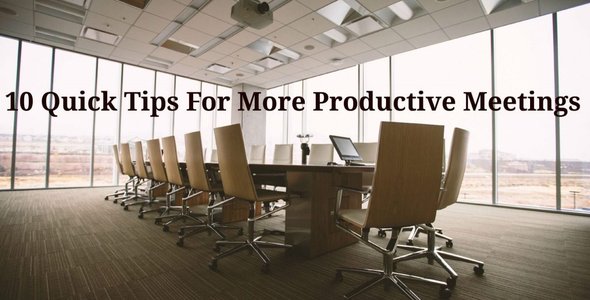[Interview] Resources For Women With ADHD
Habit Change
Linda Roggli, PCC, is an ADHD coach, author, and founder of the ADDiva Network, a community dedicated to supporting women with ADHD. I recently sat down with Linda for a quick and informative interview. Click here for more details about Linda’s upcoming retreats and programs.
![[Interview] Resources for Women With ADHD Linnnda Rooggli](/media/images/Interview_Resources_for_Women_With_ADHD_Linnnd.width-500.jpg)
Julie: What led you to create this wonderful community for women with ADHD?
Linda: I didn’t discover I had ADHD until my mid-40’s, which I now know was ‘unmasked’ because of midlife estrogen changes. Up to that point, I was trying like crazy to hide my ADHD; I wanted to keep up the façade of pretending to be “normal.”
From the outside, I looked like a success. I had created my own advertising agency, had awards on the wall, a house and family. But I was running as fast as I could to keep up. I burned out. My adrenal system was fried, so I closed the agency in 2000.
It took a year, but I finally realized that there was wisdom inside me. It was a revelation to turn inwards instead of always looking to outside experts for answers. As a result, I changed my career focus to become a retreat facilitator. I wanted to help other women discover their own wisdom. I trained with Neale Donald Walsh, Jack Canfield, and a host of other spiritual and transformational experts.
Julie: What a beautiful epiphany. What made you decide to focus on women with ADHD?
Linda: As I progressed in my training. I realized that I wanted to do something that works with my ADHD instead of fighting it. At that time (in the early 2000s), women with ADHD weren’t getting much attention from the medical community. There were literally two books about women with ADHD on the shelves. Two! So it was a natural redirection for me.
Julie: You have articulated three stages in an ADDiva Life – how women (and I would say men too) relate to their ADHD. I love this breakdown because I’ve seen this in my own clients too. Can you explain these stages for us?
Linda: ADHD clients usually are in crisis mode when they come to me. They are in danger of losing a job or marriage because of their ADHD issues. They want immediate solutions to specific problems – I called it the “Let’s Fix It” or “Explore” stage of ADHD. We focus on practical strategies and education.
After a while, my clients realize that ADHD isn’t going away. All the strategies in the world can’t banish that ADHD brain, so they begin to accept themselves. They hug their ADHD instead of pushing it away – I call this the “Embrace” stage.
The third stage is when my clients not only accept and love themselves, but wake up to their long-discarded dreams. They recognize that ADHD has clouded their bright horizons long enough: they deserve to live a richly satisfying life – as we all do. I call this “Flourish” and it’s my favorite stage.
Julie: I am curious about how you move from practical strategies in the “Let’s Fix It” stage to the even greater need to point your clients to the place where they have their own answers.
Linda: It is always a balance. We need to address the crisis first – figure out some immediate strategies to stop the bleeding. But almost instantly, we end up in the deeper issues: longing for acceptance, self love, etc.
It’s a universal human trait: we all want to be heard and understood. For ADHD folks, it’s a difficult achievement: they feel that no one ‘gets’ them.. They’ve been pounded into the pavement their whole lives for being late or “not trying hard enough.”
We get through the immediate crisis with specific strategies; But all the time I am looking for opportunities to point them back to what they already know themselves.
Over time they begin to see that they know more than they think they do. I use my coaching skills and questions to elicit insight. We experiment.
Julie: What I hear is that you meet people with where they are. I love the experimentation approach as well. This is how I work with people around time and stress management. We just build the need to change things up right into their system. You are going to do this for awhile and then you are going to find a new strategy.
Linda: It is an evolution throughout your entire life. What worked when I was 22 is not working for me now. It is good for ADHD folks because we get to change all the time and that keeps our interest – an important part of maintaining focus for the ADHD brain.
It’s all about learning to listen to yourself. ADHD folks have a hard time because they are frequently “out there” trying to please everyone else instead of paying attention to what’s going on in their own bodies. The body is where I invite people to come back to; it’s where your deepest answers live.
Julie: What advice would you offer someone who understands what they need to do to make progress but doesn’t trust themselves to always remember the strategies they know work for them?
Linda: It’s a process. Until we get it “in our bones” we do need something (or someone) out there to help remind us to come back to ourselves. The more we practice, the easier it becomes to wake up to ourselves and our own wisdom.
Julie: What piece of advice would you share with women and men with ADHD who are frustrated by their difficulties with time management?
Linda: ADHD folks have inherent time management challenges. Their brains simply don’t operate with the same “timing” as the rest of the world so they are often late or underestimate the amount of time a task takes (even a simple task like getting out the door and into the car!). They panic and try to make up for lost time, but it doesn’t work.
[Julie’s note: Click here to learn the #1 Mistake ALL people make when setting up a new time management system – regardless of whether you have ADHD.]
My suggestion is to take a breath and calm down. Then list all the things you have to do. Write down how much time each task takes (be realistic). Most people try to cram far too much into their schedules. Prioritize (difficult for ADHD folks). Let go of some of those things – you’ll have to do that anyway when you run out of time, so you might as well make conscious choices instead of crisis choices.
[Julie’s note: Click here and here for some strategies on how to make this process as simple and the least overwhelming as possible.]
It takes trial and error, but you can do this. No matter how disorganized or tardy you have been in the past, you CAN change. And it will relieve a lot of pressure.
Julie: I know you offer coaching and retreats – what is the ultimate aim of this community?
Linda: I want women to find their own voice. I want them to trust themselves and trust their own wisdom.
I know that more and more women are waking up to their own ADHD. They are horrified right after diagnosis but then they begin to understand and embrace it as part of who they truly are. It is essential to love your ADHD so you can truly be your authentic self.
Julie: I love your passion for this work. You can hear it in your words and voice. Thank you for taking the time to be with my community today!
Here are a few more resources for women with ADHD:
Website: ADDiva Retreats and Programs
Website: An ADHD Self-Test for Women
Website: Common Symptoms of ADHD in Women
Book: Women with ADD: Embrace Your Differences by Sari Solden
Book: Help for Women with ADHD by Joan Wilder
Book: True For You Time Management by Julie Gray
Tool: Timetimer.com – A visual timer
Tool: Headspace.com – A handy meditation app
Want more unconventional strategies for getting more done with less stress? Click Here to sign up for my monthly-ish newsletter.
Latest Blog posts
![[Free Meditation] The Dangers Of Self-Improvement](/media/images/Free_Meditation_The_Da.2e16d0ba.format-jpeg.fill-590x300.jpg)
[Free Meditation] The Dangers Of Self-Improvement
How you get into the water is less important than actually being in the water.

10 Hard To Believe (But True) Productivity Statistics
Here are some of my favorite hard to believe productivity statistics that help point out what science has known longer than our society

10 Quick Tips For More Productive Meetings
Maximize meeting efficiency with 10 practical tips for better productivity and engagement.